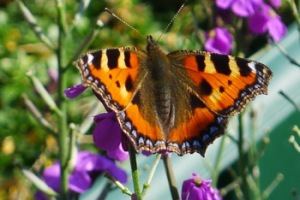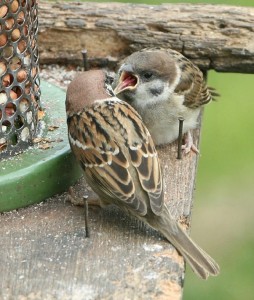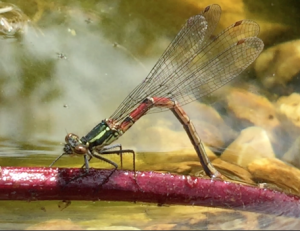My article “Do neonicotinoids affect other wildlife as well as bees? The new DDT?” made me realise that to keep abreast of this mounting evidence that they do affect other non targeted wildlife, I decided to collate science papers and corresponding press articles to allow people who don’t generally have access to the scientific knowledge enabling you to make a more informed choice.
Need relevant information to petition?
If you want to write and petition your MPs, MEPs, Local Council, etc., and need some background information you can quote independent researchers. It bring some examples under one roof. Of course there are many more articles. This is just a glimpse and may save you a little time!
For people who like the science written in a more manageable reading style, I have, if possible, included a quality press/news release article!
1. Butterfly decline Press article Independent
2. Decline insectivorous birds press article Bird Guides see explanation video
Simply put, kill insects and you deprive insect eating birds of food e.g. Tree Sparrow, Starling, Swallow
3. Dragonflies/damselflies caddisfly and other aquatic invertebrates press article Guardian
4. Composting worm Eisenia fetida (described as super toxic) press article New Scientist
5. Wildflowers are neonicotinoid reservoirs press article Guardian
6. Fish (reduced food supply) press article Nature World News
7. Lizards (reduced food supply) press article New Scientist
8. Mayflies (highly toxic) news release University of Sussex
9. Earthworms (Lumbricidae) ( live in soil not compost heaps!) press article Independent
10. Predatory beetles (of slugs… decrease in yields…‘For some reason, snail-like mollusks seem to be almost immune to the effects of insecticides’ Rachel Carson) news release The Cornucopia Institute
11. Partridge ( eating seeds) news release University of Sussex
Download the recently published scientific report undertaken by 29 independent scientists from 4 continents which found unequivocal evidence from 800 peer reviewed scientific reports on neonicotinoids, as part of the Task Force on Systemic Pesticides, “World Integrated Assessment”
Titles of science papers in case links disappear!
- Are neonicotinoid insecticides driving declines of widespread butterflies?
- Declines in insectivorous birds are associated with high neonicotinoid concentrations
- Macro-Invertebrate Decline in Surface Water Polluted with Imidacloprid
- Comparative acute toxicity of twenty-four insecticides to earthworm, Eisenia fetida
- Neonicotinoid Residues in Wildflowers, a Potential Route of Chronic Exposure for Bees
- A review of the direct and indirect effects of neonicotinoids and fipronil on vertebrate wildlife
- A review of the direct and indirect effects of neonicotinoids and fipronil on vertebrate wildlife
- Acute and chronic toxicity of neonicotinoids to nymphs of a mayfly species and some notes on seasonal differences
- A review of the direct and indirect effects of neonicotinoids and fipronil on vertebrate wildlife
- Neonicotinoid insecticide travels through a soil food chain, disrupting biological control of non-target pests and decreasing soya bean yield
- An overview of the environmental risks posed by neonicotinoid insecticides
Thanks Roy & Marie for tree sparrow photo with an excellent web site for UK wildlife photos.




Oh dear George, this makes very disturbing reading. The small contributions we ourselves try to make in our back gardens by curbing the use of pesticides etc., seem fruitless, but at least I have a clear conscience I don’t have any.
Regards as always Marian
fruitless.
Fruitless? We may well be Marian if we cannot get these neonics banned! That will take time and perseverence. At the recent Parliamentary debate even MPs, were in the main unaware that there were so many other bees besides honey bees and so many different insect pollinators than bees! Writing to our MPs would help. If everyone gave up where would we bee!!!
Cheers, George
Hi George,
I’ve already seen enough about neonics to decide they are bad and have signed various petitions etc.
What is your opinion on glyphosate as I have read various things about that now including it’s effect on feeding and learning ability of bees.
I don’t use any pesticides in my own garden but in the woods nearby and in adjacent council maintained areas and private gardens glyphosate is used extensively.
It seems to me that different life forms share so much dna that what kills one species can’t be trusted to be harmless to another but unless we all go back to the land to do manual work as in medieval days (which seems unlikely as people are far too lazy) pesticides are going to remain indispensible.
Hi Steve, I have never used chemicals. I was made aware of glyphosate many years ago. There is so much about it on the internet for you to peruse at your leisure, then you can make an informed choice for yourself. My opinion is not to use it and the arguments for that are there for all to see. Cheers, George